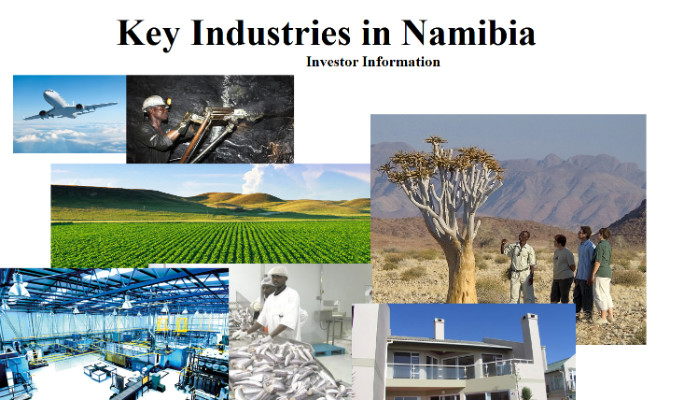
Namibia’s main businesses
Namibia, located in Southern Africa, has a diverse economy heavily influenced by its natural resources and geographic location. The country’s main businesses are centered around mining, agriculture, fishing, tourism, and services, reflecting its wealth of natural assets and strategic advantages.
Mining Industry
Namibia is renowned for its robust mining sector, which is a cornerstone of its economy. The country is one of the world’s top producers of diamonds, with companies like De Beers and Namdeb Holdings playing pivotal roles. In addition to diamonds, Namibia is rich in uranium, with the Rössing Uranium Mine and the Husab Mine among the largest contributors to global uranium production. Other minerals such as gold, zinc, and copper are also significant, with companies like Weatherly Mining Namibia and B2Gold operating in the sector.
Agriculture
Agriculture is another key industry, providing employment to a significant portion of the population. The sector is divided into subsistence and commercial farming. Livestock farming, particularly cattle, sheep, and goats, dominates commercial agriculture, with products such as beef being major exports. Crops like maize, millet, and sorghum are staples for local consumption. The Meat Corporation of Namibia (Meatco) is a major player, exporting high-quality beef to international markets.
Fishing and Marine Resources
Namibia’s coastline along the Atlantic Ocean is home to rich fishing grounds, making the fishing industry a vital part of the economy. The country exports fish products like hake, pilchards, and tuna, primarily to Europe and Asia. Companies such as Namsov Fishing Enterprises and Hangana Seafood are key contributors to the sector. Sustainable fishing practices are emphasized to preserve marine biodiversity.
Tourism
Tourism is a thriving sector, fueled by Namibia’s unique landscapes, wildlife, and cultural heritage. Attractions like Etosha National Park, the Namib Desert, and the Skeleton Coast draw tourists from around the world. The sector contributes significantly to employment and foreign exchange earnings. Businesses in the hospitality and travel industry, such as Wilderness Safaris and Namibia Wildlife Resorts, play crucial roles in promoting eco-tourism.
Energy and Renewables
Namibia has significant potential in renewable energy, especially solar and wind power, due to its abundant sunlight and open spaces. The government, alongside private companies like NamPower and independent power producers, is investing in renewable energy projects to diversify energy sources and reduce reliance on imports.
Services and Retail
The services sector, including finance, telecommunications, and retail, is growing steadily. Banks like First National Bank of Namibia and Standard Bank Namibia provide financial services to individuals and businesses. The telecommunications sector, led by companies such as Telecom Namibia and MTC Namibia, is expanding to improve connectivity across the country.
Challenges and Opportunities
Namibia faces challenges such as income inequality, unemployment, and overreliance on natural resources. However, there are opportunities for growth in areas like manufacturing, value addition in mining and agriculture, and technological innovation. Government policies aimed at economic diversification and private sector partnerships are paving the way for sustainable development.
In summary, Namibia’s main businesses leverage its rich natural resources and strategic location, with mining, agriculture, fishing, tourism, and services forming the backbone of its economy. As the country continues to address challenges, it is positioning itself as a competitive and sustainable player in the global market.



Leave a Reply